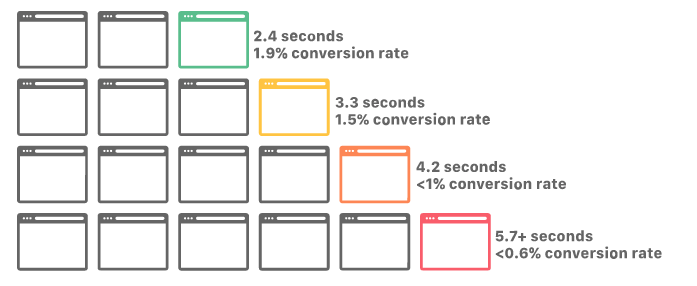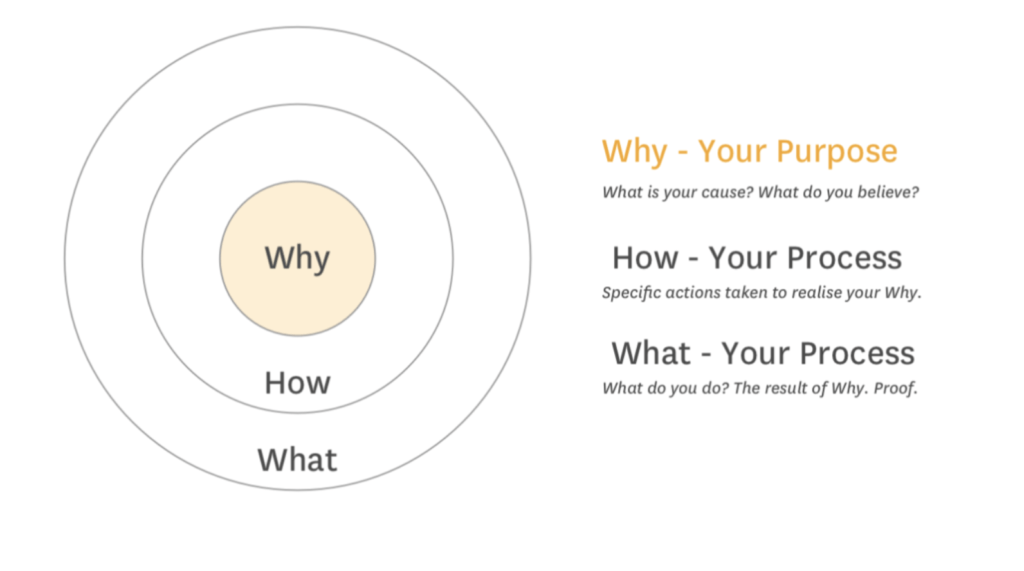How does website speed affect UX & conversion rates?

What is website loading speed & can improving it be delayed till the website becomes successful? Or, should the speed of the site be a priority from the beginning?
Many website owners still think of loading speed as a luxury feature.
If the website is fast that’s good, if it’s slow then there are other things that require more attention.
Sites with quick loading time will have better performance when it comes to user engagement, conversion rate and organic search results ranking.
Here are some stats to support the need for faster loading times especially when it comes to mobile users.
Let’s imagine that you have decided to start a business (post lockdown!) and you’d like to open a new restaurant. You’ll mostly likely look for the best location in your city – a busy area, full of potential customers. You’ll also make sure that access to your restaurant is easy and available to everyone, correct?
The same should be applied to your website. It should be available to accommodate visitors & have a fast load time to ensure you provide a satisfying experience to your website visitors, and (hopefully!) convert them into paying customers.
The difference between a restaurant and a website? Well, website speed and good performance is much cheaper and easier than securing a property in the city centre!
A slow website can have a negative impact on any kind of online business:
- A slow B2B site will hold back lead generation
- A slow blog will lose visitors and therefore ads and affiliate links profit
- A slow e-commerce website will lose sales
- A slow hotel website will lose potential customers’ bookings
Why is website speed important for user experience (UX)?
Website speed has a noticeable influence on users’ satisfaction. A fast website will receive more visitors. That’s because the website users are likely to return to the website, as they will get what they expect and more on each visit – that’s great for your search engine ranking.
If your website is slow, the user will not wait around for the website to load and you will likely see “bounce rates” be high, with users leaving to instead click on the next entry in their search results.
Why is website speed important for search engine optimisation (SEO)?
Website speed is one of the basic factors that Google depends on when comparing websites and ranking them in the search engine results.
Sometimes a slow website loading speed will demolish all the effort put into search engine optimisation and writing great organised content.
The reason that Google focuses on the importance of website speed is that it considers quick websites to provide a better user experience for its visitors. Better user experience is what Google is always trying to improve – whilst Google considers lots of factors in its ranking algorithms, UX is an ever more important part of its considerations.
How does website speed impact conversion rates?
Below is an interesting graphic from Cloudflare, based on data by HubSpot describing with some really clear data showing that the slower your website, the lower the conversion rate:

How to improve your website speed and provide a good experience for your visitors?
Often a deeper audit is needed to analyse why a site is not performing well, and there might be some deep rooted development issues that need solving. But here are some basic tips that might help improve your website loading times:
- Avoid using a lot of external scripts and plugins
- Make sure to use a fast and reliable hosting provider like WP Engine
- Compress the size of the images used on your website
- Try to move the page scripts like Google Analytics etc to the footer of the page where possible
- Use page and browser caching
- Make sure that your hosting provider offers server caching and a content delivery network (CDN)
How to test website speed?
There are many online tools that you can use to analyse the speed of your own website and to retrieve related optimisation recommendations for faster loading speeds, including:

Internal day: May 2020

Applying ‘The Golden Circle’ to web projects
Let's Talk
Do you have a web design and build project coming up that you would like to talk about?